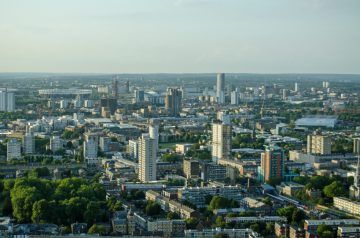Less Than Half of Property in London is Priced at the Average Value or Below

Less Than Half of Property in London is Priced at the Average Value or Below
Less than half of all property in London is priced at the average value or below, according to the latest research into the capital’s housing market by online estate agent eMoov.co.uk.
The average house price in London now exceeds £500,000, making living in the capital as unaffordable as ever for a typical homebuyer.
eMoov has analysed the current total housing stock level for each London borough, comparing this to the amount of stock listed for £550,000 or less. The agent then calculated this as a percentage of total stock.
The study found that in total, less than half (46%) of housing stock in the capital is for sale at the average London property price or less.
The six worst areas where affordability is concerned are within prime central London. Just 6% of the properties for sale in Kensington and Chelsea are below £550,000, followed by 7% in Westminster, 14% in Hammersmith & Fulham, 14% in Camden, 22% in Wandsworth and 25% in Islington.
In a further 13 of the capital’s boroughs, just 50% or less of their housing stock is listed for the average price or lower.
Offering hope for the average buyer are the following boroughs: Barking and Dagenham, where 97% of its housing stock is £550,000 or less; Bexley at 91%; Havering at 84%; Sutton at 79%; Croydon at 79%; Newham at 78%; Greenwich at 72%; Redbridge at 72%; Lewisham at 66%; Hillingdon at 65%; Enfield at 65%; Waltham Forest at 64%; Bromley at 61%; and Hounslow at 57%.
Amount of stock currently listed for the average price or less
[table id=12 /]
The founder and CEO of eMoov, Russell Quirk, comments: “It’s no surprise to anyone that the majority of London is unobtainable to many from a property point of view. However, this research highlights just how out of reach the capital actually is for UK homebuyers, even for those with the sizeable budget of £550,000.
“When you talk about the average cost of buying in the capital being over half a million pounds, the mind really does boggle. Regardless, for many, the average house price is a benchmark, a milestone, on just what they need to have in the bank to live in a certain area. But this average price masks the true cost of living in the capital or even where in the capital you can live for that matter.”
He adds: “When you consider that even with that sort of healthy budget, you would have to restrict your property search by removing more than half of the properties currently for sale in the capital, it really highlights how little £550,000 can get you in the London market.”









